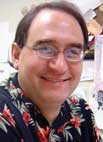User login
Does anyone else out there go to grand rounds? I don’t either.
I’m sure this is still a cherished tradition at academic places. But in the real world of private practice, it’s not.
That’s not to say my nonteaching hospital doesn’t still have them. Occasionally, I see a notice up for some sort of educational gathering. I scan it, but really have no interest in going. Even the opportunity for an hour of free CME doesn’t entice me.
Realistically, I’d rather be at my office, working. An hour spent in a lecture hall is 1 hour more of work I need to do after I get back.
In medical school and residency, you went. You didn’t have a choice. There was always some eagle-eyed attending physician scanning the crowd, making mental notes on who was or wasn’t there. (Yes, Bill and Larry, I’m talking about you.)
I’m not sure I ever got anything out of it, besides coffee and a bagel. In my experience, a lot of it was on some esoteric research that didn’t have any immediately practical applications. There were, of course, exceptions. Sometimes there’d be a good review of a disorder and its treatments that was helpful, but they were the exception rather than the rule. Usually, I just nodded off in the back. Rarely, I’d make my pager chirp, look at it, and leave. (This was such a common trick for everyone that you couldn’t do it too often.)
These days, I find it easier to handpick my own learning material, usually on an iPad, and learn it on my own schedule. This way it’s more relevant and useful to me. And in private practice, that’s what’s important.
Dr. Block has a solo neurology practice in Scottsdale, Ariz.
Does anyone else out there go to grand rounds? I don’t either.
I’m sure this is still a cherished tradition at academic places. But in the real world of private practice, it’s not.
That’s not to say my nonteaching hospital doesn’t still have them. Occasionally, I see a notice up for some sort of educational gathering. I scan it, but really have no interest in going. Even the opportunity for an hour of free CME doesn’t entice me.
Realistically, I’d rather be at my office, working. An hour spent in a lecture hall is 1 hour more of work I need to do after I get back.
In medical school and residency, you went. You didn’t have a choice. There was always some eagle-eyed attending physician scanning the crowd, making mental notes on who was or wasn’t there. (Yes, Bill and Larry, I’m talking about you.)
I’m not sure I ever got anything out of it, besides coffee and a bagel. In my experience, a lot of it was on some esoteric research that didn’t have any immediately practical applications. There were, of course, exceptions. Sometimes there’d be a good review of a disorder and its treatments that was helpful, but they were the exception rather than the rule. Usually, I just nodded off in the back. Rarely, I’d make my pager chirp, look at it, and leave. (This was such a common trick for everyone that you couldn’t do it too often.)
These days, I find it easier to handpick my own learning material, usually on an iPad, and learn it on my own schedule. This way it’s more relevant and useful to me. And in private practice, that’s what’s important.
Dr. Block has a solo neurology practice in Scottsdale, Ariz.
Does anyone else out there go to grand rounds? I don’t either.
I’m sure this is still a cherished tradition at academic places. But in the real world of private practice, it’s not.
That’s not to say my nonteaching hospital doesn’t still have them. Occasionally, I see a notice up for some sort of educational gathering. I scan it, but really have no interest in going. Even the opportunity for an hour of free CME doesn’t entice me.
Realistically, I’d rather be at my office, working. An hour spent in a lecture hall is 1 hour more of work I need to do after I get back.
In medical school and residency, you went. You didn’t have a choice. There was always some eagle-eyed attending physician scanning the crowd, making mental notes on who was or wasn’t there. (Yes, Bill and Larry, I’m talking about you.)
I’m not sure I ever got anything out of it, besides coffee and a bagel. In my experience, a lot of it was on some esoteric research that didn’t have any immediately practical applications. There were, of course, exceptions. Sometimes there’d be a good review of a disorder and its treatments that was helpful, but they were the exception rather than the rule. Usually, I just nodded off in the back. Rarely, I’d make my pager chirp, look at it, and leave. (This was such a common trick for everyone that you couldn’t do it too often.)
These days, I find it easier to handpick my own learning material, usually on an iPad, and learn it on my own schedule. This way it’s more relevant and useful to me. And in private practice, that’s what’s important.
Dr. Block has a solo neurology practice in Scottsdale, Ariz.
